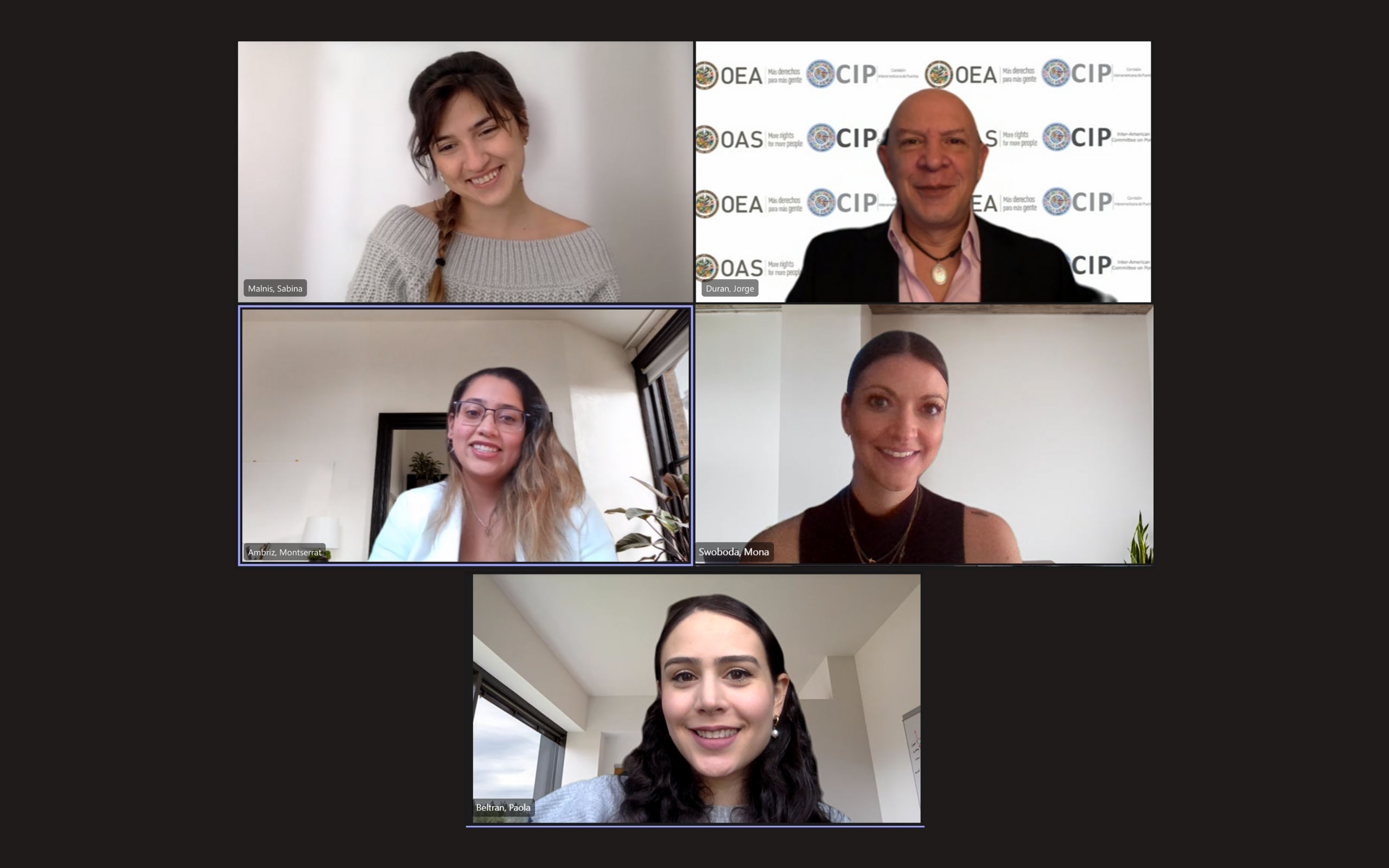Capacity building, disaster risk management, empowerment
Indications are that despite the sustained displacements created by the COVID-19 pandemic, the rise of a resilient Inter-American Committee on Ports (CIP) of the Organization of the American States will continue through 2022.
Reports from the regional multilateral organisation, described a “renewed CIP” expanding its programme outputs in areas of training and capacity building; and spoke to a continuation of the political process; project implementation (as technical assistance); and, a return to on-site hemispheric events.
At the same time, the renewed CIP is bent on continuing efforts to increase its English-based offers and opportunities. The training calendar for 2022 includes at least six certified online courses in English for Caribbean National Port Authorities. Areas of focus will include Port Management, Business Continuity, Disaster Risk Management, as well as Automation and Digitalisation.
CIP also plans to conduct three regional workshops (online and/or on-site) for Caribbean national port authorities. These workshops will address critical issues of disaster risk management across the Caribbean region.
CIP’s Improved Disaster Risk Management for Ports in the Caribbean project had already produced an updated model emergency operations response plan for Caribbean Ports. The plan was prepared with the collaboration of stakeholders, including the Caribbean Disaster Emergency Management Agency (CDEMA), the Caribbean Shipping Association (CSA), HudsonAnalytix, the Port Management Association of the Caribbean (PMAC), and the United States Coast Guard (USCG).
CIP’s training calendar for 2022 includes at least six certified online courses in English for Caribbean National Port Authorities with areas of focus that will include Port Management, Business Continuity, Disaster Risk Management, as well as Automation and Digitalisation.
Capacity building
 More than 34 online courses were presented in 2020 and 2021. Several were in English on topics of particular interest to Caribbean port authorities. In this context, having created a robust online capacity-building and training programme as a response to the COVID-19 outbreak and the related cancellation of on-site activities, the CIP will continue to deliver capacity-building programmes for port personnel, stated OAS-CIP Chief of Section, Jorge Duran.
More than 34 online courses were presented in 2020 and 2021. Several were in English on topics of particular interest to Caribbean port authorities. In this context, having created a robust online capacity-building and training programme as a response to the COVID-19 outbreak and the related cancellation of on-site activities, the CIP will continue to deliver capacity-building programmes for port personnel, stated OAS-CIP Chief of Section, Jorge Duran.
Caribbean-focused webinars were planned for delivery in the year ahead. These webinars were designed for transferring useful information, but also for fostering continuing regional dialogue between CIP and its partner organisations, including PMAC, CSA and CDEMA. Topics slated for treatment and presentation at these virtual events include:
- Sustainable port operations;
- Sustainable dredging;
- Maritime single windows;
- Port community systems;
- Ports and customs modernization; and
- Cybersecurity
 The year to come will also see the CIP resume its on-site hemispheric conferences. These events will be produced and delivered with the collaboration of the national port authorities that Chair the Committee’s Technical Advisory Groups (TAGs).
The year to come will also see the CIP resume its on-site hemispheric conferences. These events will be produced and delivered with the collaboration of the national port authorities that Chair the Committee’s Technical Advisory Groups (TAGs).
In these events, public and private strategic partners and industry experts together provide a relevant and accessible forum for exchange of knowledge and sharing of information about successful practices.
“These are undertaken on the most pressing port issues, including logistics, security, disaster risk management, environmental sustainability, safety guidelines, legislation, gender equality, and, relevant to the context of the pandemic and new guidelines from the International Maritime Organization (IMO) and the Trade Facilitation Agreement
(FTA), acceleration of digitalisation in ports, specifically maritime single windows (MSW) and port community systems,” a recent CIP report noted.
Political port dialogue
The promotion of an effective and sustained political dialogue that engages national port authorities is one of the four objectives of the CIP in pursuing its mandate of advancing the development of a competitive, secure, sustainable and inclusive port sector. This it does by creating the means and circumstances for political dialogue. In this regard, the CIP holds two types of meetings: CIP Regular Meetings, which are held every two years; and, the CIP Executive Board (CECIP) meetings, which are held annually.
Having successfully held its 12th Regular Meeting, the 2021-2023 Plan of Action of Buenos Aires was approved, resulting in the election of a new Executive Board made up with Honduras as Chair, and Antigua and Barbuda, and Uruguay as first and second Vice Chairs respectively. Argentina, Barbados, Mexico, Panama, Peru and Uruguay chair the six Technical Advisory Groups of the Committee.
The year ahead will have the CIP continuing to foster its Political Port Dialogue in the Americas the 22nd CIP Executive Board Meeting to be held in Colonia, Uruguay in March 2022.
The CIP Secretariat indicated that it will continue to provide technical assistance to regional partners. In this regard, as Barbados continues to make progress towards port digitalisation, the CIP will continue with the project for the Establishment of a Barbados Port Community System (PCS) in collaboration with Barbados Port, Inc.






